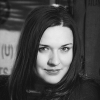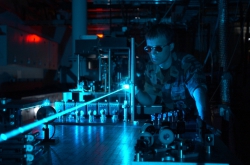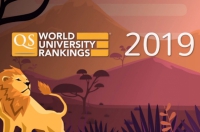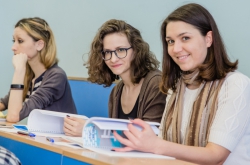Indicator composed a questionnaire that included 21 questions. As the ranking’s authors point out, the keyword while formulating the questions was “scientific”. The questionnaire was aimed at finding out such things as: how many scientific press-releases were prepared and distributed by the universities to domestic and foreign media in the first six months of 2017, whether scientific news appear on the universities’ websites and how often they are updated, as well as whether press-releases get translated into English and are dispatched on foreign platforms, thus promoting their distribution to media (EurekAlert, AlphaGalileo), etc.
Answers to questions about the number of press-releases published during the past six-month period, frequency of press-releases’ English translations’ dispatch on EurekAlert or AlphaGalileo portals and the number of publications on science in foreign media were awarded a maximum of up to six points. Answers to other questions could bring each university from 1 to 4 points. So, each university in the ranking could get 4 points if they had a "Science" section on their website and that was updated quite frequently. Any issues related to the number of scientists working at a particular university, special projects they participate in or its PR Department team were not among the evaluation criteria of the ranking.
Indicator’s contributing authors wrote a column (available in Russian) in which they shared their experiences of composing the ranking.
All Universities of Project 5-100 which were ranked by Indicator got divided into four groups. ITMO topped the first group by scoring 36 points out of 39. Tomsk Polytechnic University, Higher School of Economics and Moscow Institute of Physics and Technology were also included in the first group - with a minimal gap in scores, as compared to ITMO. The second group included universities that scored from 20 to 29 points, like TSU, SPbPU and MISiS. The third group was comprised of universities which earned 10 to 19 points: among them KPFU, Tyumen State University and Samara State University. The fourth (and final) group included all of the remaining participants of Project 5-100 - universities that earned less than 10 points in the ranking.
"The survey we conducted here exposed that the overwhelming majority of universities which are part of Project 5-100 still pay very little attention to promoting their scientific achievements in the media. Even though any university could get a maximum of 6 points for publishing just six scientific press-releases over the past six months, mere 13 universities got that “six”,” - creators of the ranking comment.
They also complained that news on most universities’ websites don’t look like "live tapes of actual news, which could interest and draw attention of an outside reader and not only this university’s students". Creators of the ranking also expressed certain doubts that the term "science communications" even applies to some PR teams.
Nevertheless, ITMO has been consistently and systematically promoting its science news - ever since the Department for Science Communication (now Center for Science Communication) was founded in early 2015. The center’s interaction with ITMO’s Press Service is not limited to finding fresh scientific publications, compiling press-releases and distributing them to the media. ITMO’s scientists are actively participating in major science festivals, such as GEEK PICNIC, "Campus" (formerly "Open University") and others. They conduct lectures and master-classes and get quoted as experts in regional and federal mass-media.

Dmitry Malkov
"I am glad that finally “communications” and “popularization of science” components of universities’ activities’ are considered important enough in Russia to be included in the overall evaluation process. In the long term, this can indeed lead to important developments in science communication at universities. We have no doubt that a ranking system can’t rely solely on information obtained from the subjects themselves via survey using questionnaires. I would rather be interested in seeing a ranking based on data collected from open sources. We are actually doing something like that now: we are collecting data on all universities and scientific institutions in Russia - more than two thousand organizations overall," - says Dmitry Malkov, Director of ITMO’s Center for Science Communication.
According to Dmitry Malkov, only creating a proper scientific agenda for external communication can guarantee that all PR-work covering scientific discoveries at a university can actually be effective. The more departments of a university get exposed to this idea, the easier and more transparent this communication becomes.
Follow this link (available in Russian) for more details on Indicator’s ranking.
ITMO.NEWS Editorial Team





